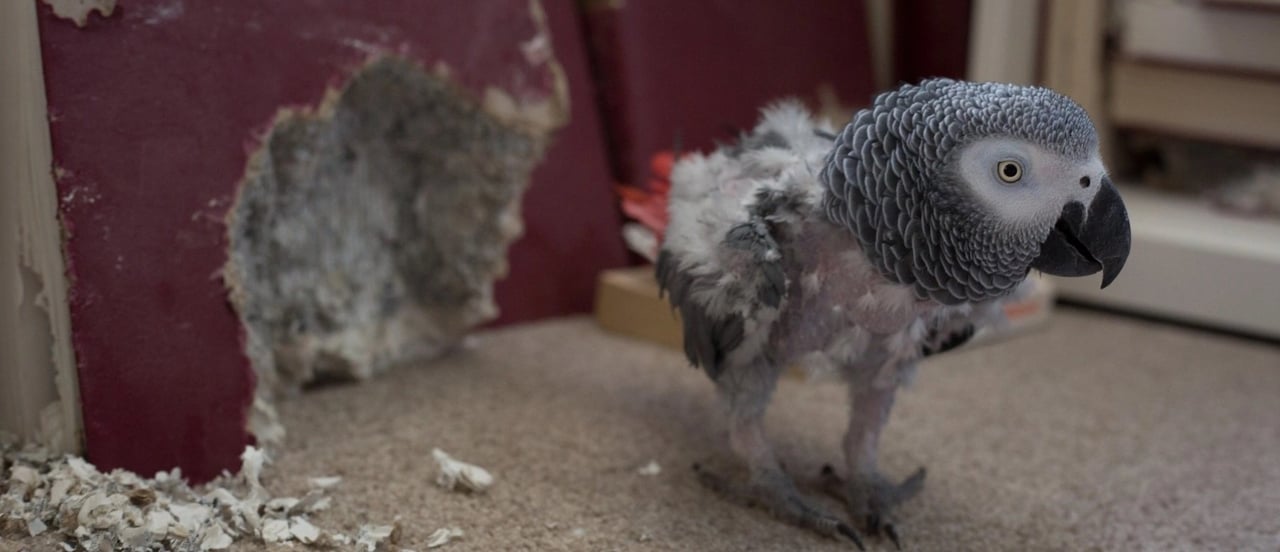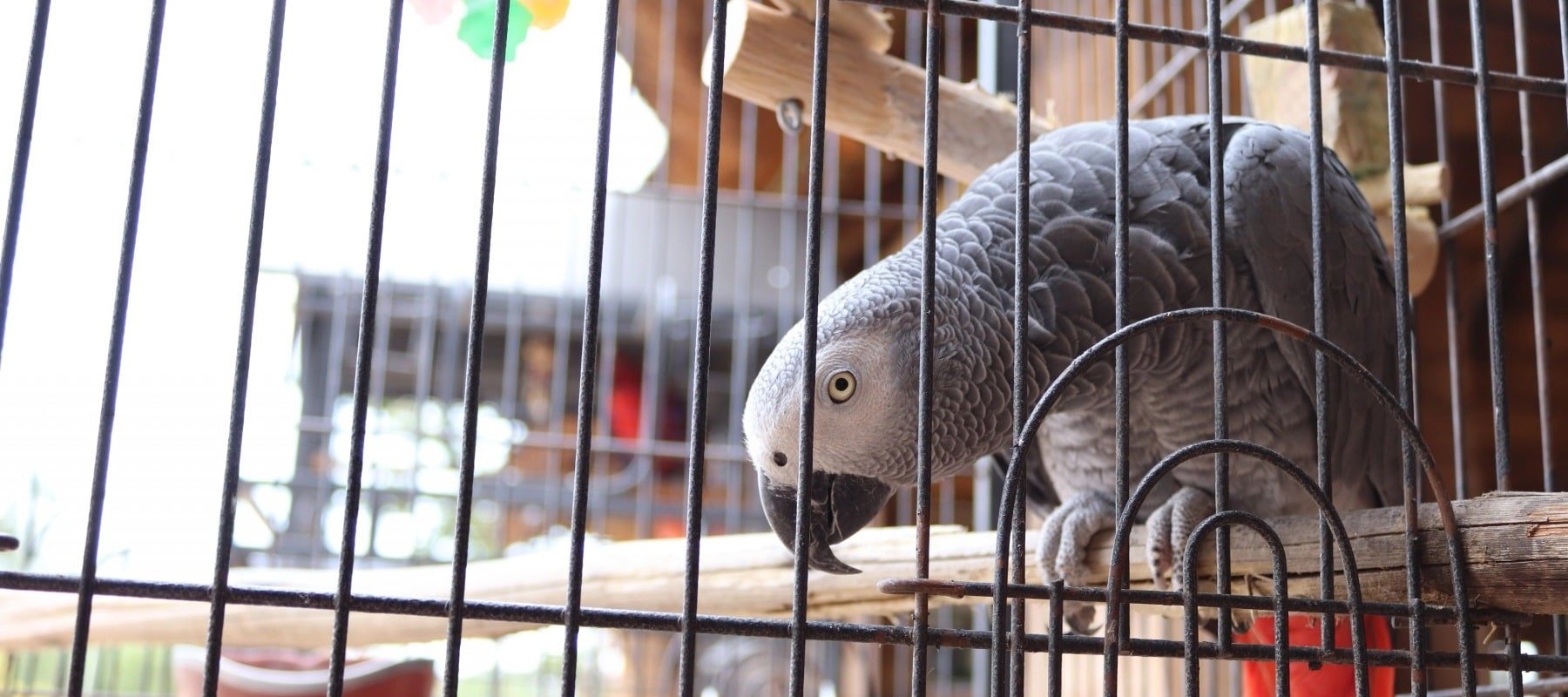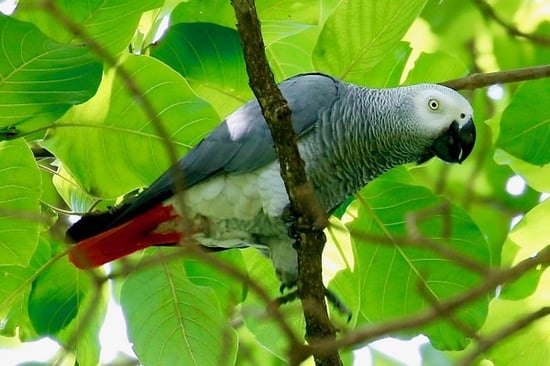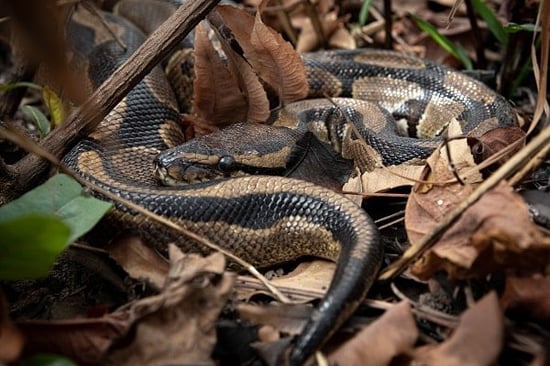
Exotic animals belong in the wild
Every year, millions of wild animals are captured to become pets of people who are unable to properly care for them.
Image credit: World Animal Protection / Jeremy Sutton-Hibbert
Wild animals like snakes, parrots, tortoises, and such are often sold to people as ‘exotic pets’ by the multi-billion-dollar global wildlife trade.
However, most people are unaware about how this industry cruelly snatches these animals from their natural habitats and profits from their suffering.
Most people are unequipped to care for these wild animals as it is not possible to replicate the space and freedom they would have in the wild. The small and uncomfortable confinements that they are kept in cause them major distress as they cannot express their natural behaviours, and many of them don’t even survive the exhausting transport.
As their needs are complex, many pet snakes, lizards, tortoises, and turtles die within one year of becoming a pet. Captive-bred ball pythons often have serious genetic defects, while captive green iguanas can suffer from soft bones due to a poor diet, and handling Indian star tortoises can cause them disease and death.
There are legal as well as illegal sides to the fast-growing exotic pet trade, but legality doesn’t matter. Whether they are bred in captivity or caught from the wild, it is still cruelty to rob these living beings of their rich lives in the wild, where they belong.
We urge you to only share your home with domesticated animals like dogs and cats who have evolved over thousands of years to be our companions and whose needs can be completely met as pets. Together, we can we keep wild animals in the wild.

African grey parrots
African grey parrots face horrific cruelty in the exotic pet trade
African grey parrots are sociable and intelligent birds who lead complex and active social lives in the wild. They can fly up to ten miles a day with their lifelong mates and large social groups. But today, they are one of the most illegally trafficked birds in the world.
A poacher typically gets the attention of these rare birds by repeatedly hitting a lure bird who cries out for help. The wild parrots instinctively come to the rescue of the lure bird but find their feet stuck in a cruel trap laid by the poacher. Soon after, the poacher roughly yanks them, uses a machete to chop off their flight feathers, dumps them into wooden boxes and drives off. Many parrots don’t even survive this gruelling journey as it is extremely stressful and exhausting for them.
For a popular choice of pet in Europe, the USA and the Middle East, African grey parrots don’t do well in captivity as a solitary life in a cage is unnatural and distressing to them. Unfortunately, most owners do little to no research before purchasing these unique birds who have complex needs that simply cannot be met in a human household as they cannot thrive in captivity.
With your support, we can keep these vulnerable birds in the wild and encourage people to only adopt domesticated animals who’ve evolved over thousands of years to be our companions, and whose needs can be completely met as pets.
Wild at heart
Read our 'Wild at Heart' report and learn about the cruelty of the exotic pet trade.

Ball pythons
Ball pythons are suffering in silence
Image credit: World Animal Protection / Aaron Gekoski
Ball pythons are sensitive animals with complex needs who are wrongly regarded as being a good ‘starter pet’ because of a misconception that they require very little specialised care. They are one of Africa’s most traded live animals and one of the most popular snakes in the global exotic pet trade.
Most exported Ball pythons have been reported as ranched, which involves the collection of females carrying or developing their eggs (gravid) from the wild to be kept at farms until the eggs have hatched. They are exported as juveniles at just 15 to 30 days post-hatching with minimal to non-existent monitoring. The horrendous journey causes them great suffering which continues in the hands of traders and pet shops.
Before sale, they are cruelly stuffed into tiny plastic containers with no space for them to move or shelter, no water and nothing to help these sensitive animals regulate their body temperature. Sadly, most new owners are ill-prepared to provide the specialist care these sensitive animals need and many die as a result.
The global wildlife trade causes these snakes to undergo horrific suffering and puts people at risk too. Together we can work towards having a permanent ban imposed on all wildlife trade protecting wild animals in the wild, eliminating animal suffering in captivity will also help to prevent major health epidemics.
Suffering in silence
Read our 'Suffering in silence' report and learn how we uncovered the cruelty of the global trade in ball pythons.



